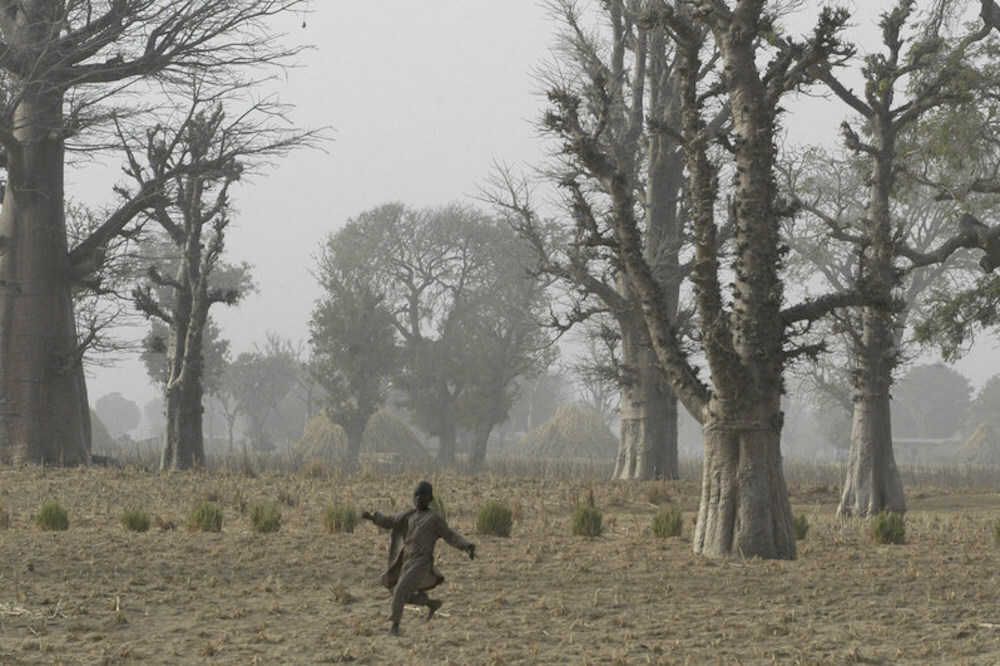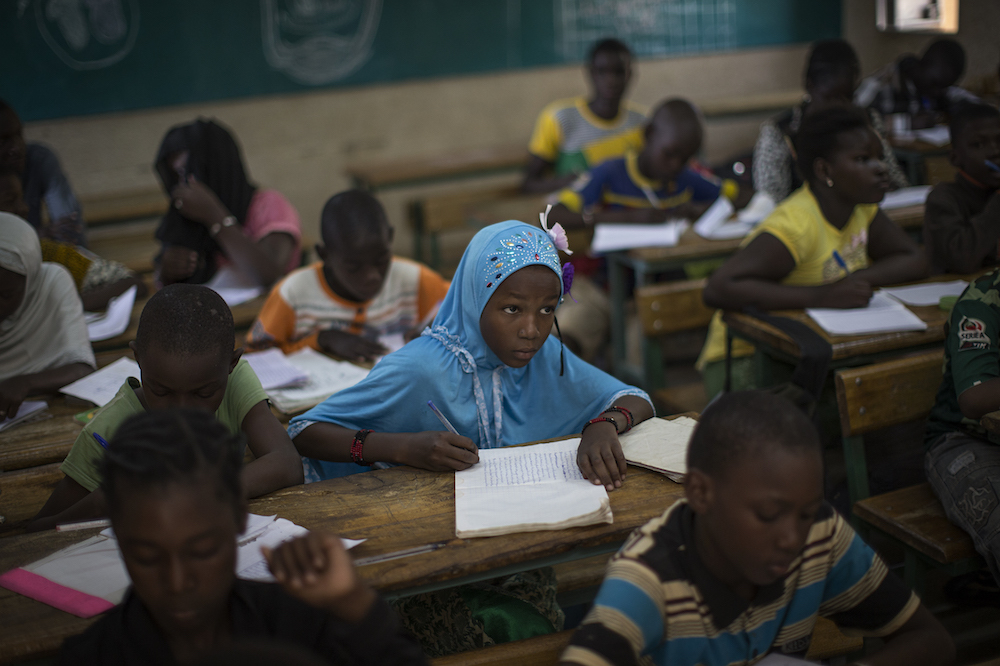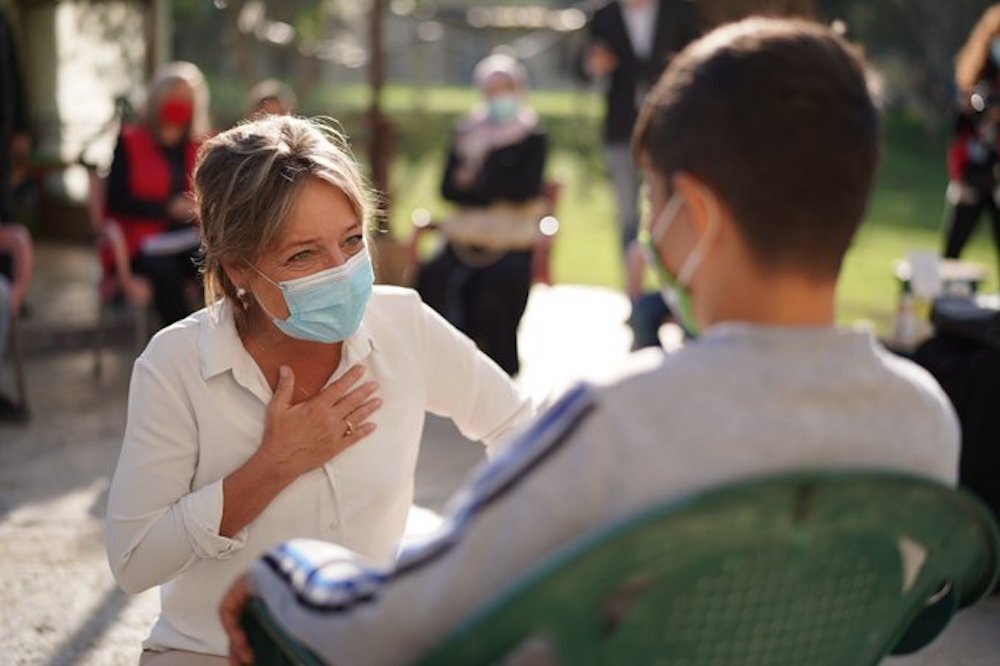
Five things you need to know this week about global education

Education in emergencies, The Global Business Coalition for Education (GBC-Education)
Our news roundup features the reported rescue of more than 300 kidnapped schoolboys in Nigeria and $1.5 billion in funding to improve education in low-income countries.
Abducted students back home after rescue
Dozens of kidnapped schoolboys are reported to have arrived back home today after security forces rescued them in northwest Nigeria. They had been among about 350 students abducted in a raid that had echoes of the infamous kidnapping of 270 schoolgirls at Chibok in 2014.
Reuters news agency said television pictures showed the boys, many of them wearing light green uniforms and clutching blankets, arriving on buses, looking weary but otherwise well.
Gunmen raided the Government Science Secondary School at Kankara in Katsina state a week ago and marched hundreds of boys into the vast Rugu forest.
It is not clear if all of them have been rescued. A state official said 344 had been freed.
“I couldn’t believe what I heard until neighbours came to inform me that it’s true,” said Hafsat Funtua, mother of 16-year-old Hamza Naziru.
Following the mass abduction, several Katsina and several other states closed their schools. The terrorist group Boko Haram, who were also behind the Chibok attack, had claimed responsibility for the Katsina attack.
Nigeria is set to host the fourth International Conference on Safe Schools in 2021 and is one of the first African countries to endorse the Safe School Declaration – a commitment by countries to protect education from attack.
GPE's record $1.5bn to aid education
Explore a series of results stories showcasing how GPE is transforming education in partner countries and giving millions of children the tools they need to build a better future: https://t.co/k9QVVowIq3 pic.twitter.com/HHD5EGLsZ6
— Global Partnership for Education (@GPforEducation) December 17, 2020
The Global Partnership for Education has approved $300 million in new grants to transform education systems in the Central African Republic, Ethiopia and Mozambique, whose $140 million grant is the biggest ever provided to a partner country.
It takes the organisation’s total funding to help lower-income countries in 2020 to nearly $1.5 billion. The grants will contribute to school construction and rehabilitation, textbook distribution, teacher training, learning assessments and school meals.
Of the GPE’s $1.5 billion total funding, more than $500 million has gone to Covid-19 responses.
Meanwhile, increased coronavirus cases have led to schools being closed again in Germany and the Netherlands. South Korea ordered schools to close in the capital Seoul and surrounding areas as it battles its worst outbreak since the pandemic began.
Brown urges global education co-operation

Global leaders in education say international cooperation is needed to safeguard the future of education (UN Photo)
Gordon Brown, the UN Special Envoy for Global Education, said he has been “shocked” by the lack of global co-ordination this year to safeguard the future of education.
He called for better co-operation and “innovative financing” at the opening session of the RewirEdX conference.
The virtual summit hosted by Dubai Cares featured education ministers and high-profile speakers from UN agencies, international NGOs, academia and the private sector.
Participants raised fears over the likelihood of losing $150 billion from education budgets globally over the next year as a result of the economic crisis caused by Covid-19. They also called for a global recovery initiative with education at its core.
Partners to repair Beirut schools

Yasmine Sherif, Director of Education Cannot Wait (ECW), during her mission to Lebanon (ECW)
Education Cannot Wait (ECW) and UNESCO Beirut launched a partnership to repair 40 damaged schools and provide 94 schools with new equipment after the explosion that rocked Lebanon’s capital in August.
ECW went on a six-day mission to Lebanon that included visits to informal settlements hosting Syrian refugees, Palestinian refugee camps and meetings with parents and children from marginalised Lebanese families.
“We must all invest in education in Lebanon today – if not now, it may soon be too late,” said ECW Director Yasmine Sherif. “I call on public and private sector donors around the world to support Lebanon’s education system with the fierce urgency of now.”
The global fund said 631,209 Syrian children and 447,400 vulnerable Lebanese children faced challenges accessing education in 2019. This number increased in 2020 due to the pandemic.
Help needed for refugees with autism
Children with autism in #Jordan & #Turkey need your company's support. Can your #SocialImapct team donate devices or offer internet so more families can use @AGVFAutism's learning app?
Learn more and connect with our team at https://t.co/XprpJALFX8. pic.twitter.com/KLA7MvCeUE
— Global Business Coalition for Education (@gbceducation) December 15, 2020
A project to make education more accessible for Syrian refugee children with learning disabilities is looking for businesses to help provide digital devices or internet connectivity.
A Global Voice for Autism – a partner of Theirworld’s initiative Global Business Coalition for Education – built a mobile application to produce and share curriculum for learners with autism and developmental disabilities in Jordan and Turkey.
Many of the families supported have to share a single smartphone, computer or tablet. The organisation hopes businesses can step in to help children continue to learn while at home during school closures.
GBC-Education’s Rapid Education Action (REACT) team will put interested companies in touch with its partners.
More news

